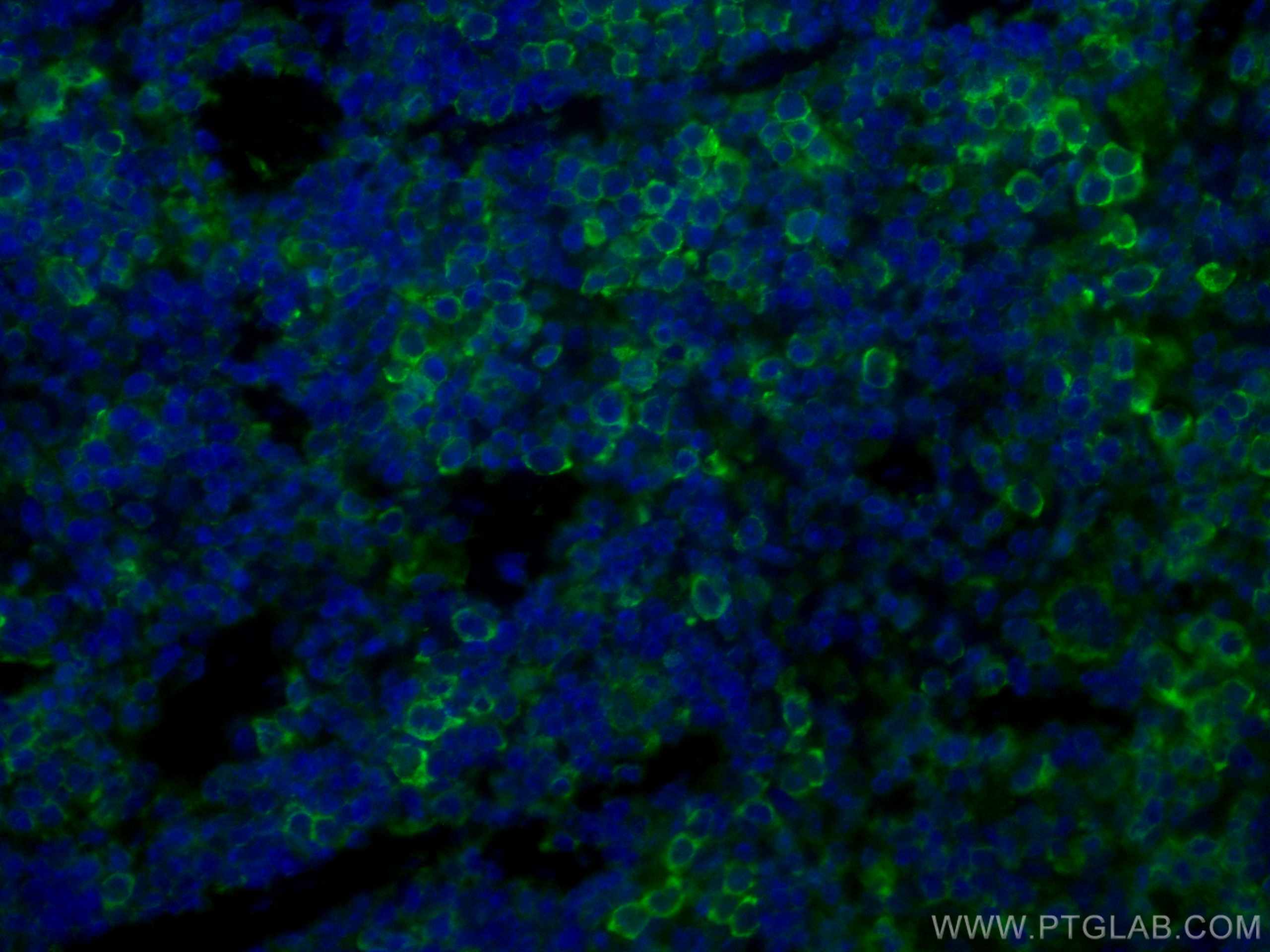CoraLite® Plus 488-conjugated ICAM4 Monoclonal antibody
ICAM4 Monoclonal Antibody for IF
Host / Isotype
Mouse / IgG1
Reactivity
Human
Applications
IF
Conjugate
CoraLite® Plus 488 Fluorescent Dye
CloneNo.
3A9B9
Cat no : CL488-67014
Synonyms
Validation Data Gallery
Tested Applications
| Positive IF detected in | human spleen tissue |
Recommended dilution
| Application | Dilution |
|---|---|
| Immunofluorescence (IF) | IF : 1:500-1:2000 |
| Sample-dependent, check data in validation data gallery | |
Product Information
CL488-67014 targets ICAM4 in IF applications and shows reactivity with Human samples.
| Tested Reactivity | Human |
| Host / Isotype | Mouse / IgG1 |
| Class | Monoclonal |
| Type | Antibody |
| Immunogen | ICAM4 fusion protein Ag27628 相同性解析による交差性が予測される生物種 |
| Full Name | intercellular adhesion molecule 4 (Landsteiner-Wiener blood group) |
| Calculated molecular weight | 271 aa, 29 kDa |
| GenBank accession number | BC029364 |
| Gene symbol | ICAM4 |
| Gene ID (NCBI) | 3386 |
| RRID | AB_2919405 |
| Conjugate | CoraLite® Plus 488 Fluorescent Dye |
| Excitation/Emission maxima wavelengths | 493 nm / 522 nm |
| Form | Liquid |
| Purification Method | Protein G purification |
| Storage Buffer | PBS with 50% Glycerol, 0.05% Proclin300, 0.5% BSA, pH 7.3. |
| Storage Conditions | Store at -20°C. Avoid exposure to light. Aliquoting is unnecessary for -20oC storage. |
Background Information
This gene encodes the Landsteiner-Wiener (LW) blood group antigen(s) that belongs to the immunoglobulin (Ig) superfamily, and that shares similarity with the intercellular adhesion molecule (ICAM) protein family. The protein migrate as a 42 kDa glycoprotein on SDS PAGE. Alternative splicing results in multiple transcript variants encoding distinct isoforms.
Protocols
| Product Specific Protocols | |
|---|---|
| IF protocol for CL Plus 488 ICAM4 antibody CL488-67014 | Download protocol |
| Standard Protocols | |
|---|---|
| Click here to view our Standard Protocols |


